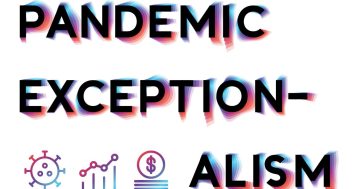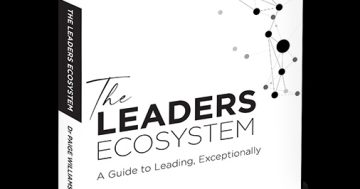Dr Paige Williams* says failing can be an important learning opportunity.
 I’ve never considered myself as fragile, rather I’ve seen myself as strong, resilient, and able to roll with the ups and downs that come.
I’ve never considered myself as fragile, rather I’ve seen myself as strong, resilient, and able to roll with the ups and downs that come.
But there was a period last year when a series of events in my professional and personal life resulted in some serious cracks.
So I’ve been pondering: what does it mean to be fragile? What are the consequences and implications? And what is it that makes us fragile anyway?
When something is fragile, it breaks under pressure.
And pressure comes in many guises including uncertainty, change and complexity, which can all add even more pressure to our lives.
Whether it’s the loss of a relationship, a new boss, colleague, IT system or that looming project deadline, pressure surrounds us everywhere.
As Forrest Gump’s Mumma so wisely said, “Life is like a box of chocolates Forrest, you never know what you’re gonna get.”
Why does understanding failure and what we fear matter?
When we are familiar with our context and it is safe, simple and stable, our fragility goes untested and unexposed, and we are ok – for now.
Here, we can operate with a level of ease, but at the back of our minds, there may be a niggling thought that we are working at our threshold – surviving for now – and that with any more pressure our vulnerability could be exposed.
And as the last few years have shown us, this kind of stability doesn’t stay around for long, because Life Happens!
Then something significant shifts in our context which means it becomes less familiar, less stable, more complex and more uncertain.
And it’s not always bad.
My eldest daughter started Year 11 in a new school and my youngest daughter started high school this year – both big disruptions in their lives, but ultimately (hopefully!) positive ones.
It’s at times like these – when things change significantly – that our fragility is tested and we can quickly go from ‘surviving for now’ to ‘breaking under pressure’ as we struggle to cope with what is being asked of us and can’t see how we have or can get access to the resources we need to survive.
So what makes us fragile?
Unfortunately, many of the habits, systems, processes and mindsets in our modern society make us fragile.
That includes through things like social media, where too much of our identity, self-concept and self-belief lies in the hands of others, and how many ‘likes’ or comments our posts received.
Failing to recognise our biases and ‘default’ thinking patterns; listening to the same voices with similar perspectives to our own (the ‘echo chamber’), rather than seeking diversity and healthy conflict, and avoiding failure and the responsible learning that comes with it, make us – and our teams – fragile.
Now this is the big one: playing it safe and not taking risks due to the fear of failure can make and keep us feeling even more fragile.
Because the reality is, without challenges in life, we may struggle to cope with the inevitable failures, falls and challenges that do eventually happen.
So what can we do?
One of the ways that playing safe makes us fragile is because when failure happens, we overreact because we’re not used to it, which ironically pushes us back into a cycle of playing small and staying safe.
Trying new things with a ‘test and learn’ mentality can break this unhelpful cycle.
By conducting lots of small experiments across a range of areas you can learn by regularly ‘failing small’.
Spreading the failing risk means that you benefit from a continual learning loop.
For example, you might introduce one new question into your team meeting and see how it goes.
You could then introduce a different new question into a project meeting and see how that goes.
Then try another new question in a one-to-one with your colleague/boss/tricky team member and see how that goes.
If any of the questions ‘bomb’ that’s fine because the experiments are independent of each other.
You can take the learning from each one and apply it to the next context without taking yourself out of the game.
Failing doesn’t have to mean that you’re ‘broken’, it can rather be an invitation to learning and growth.
Failing small, failing fast and learning forward is the smart, strategic way to support us in getting through the disruption, uncertainty and the natural challenges in life with a little more ease and grace.
*Dr Paige Williams, author of Becoming Antifragile, Learning to Thrive through Disruption Challenge and Change is a researcher, PhD in Organisational Behaviour and trusted advisor to senior leaders. She can be contacted at drpaigewilliams.com
This article first appeared at womensagenda.com.au.











